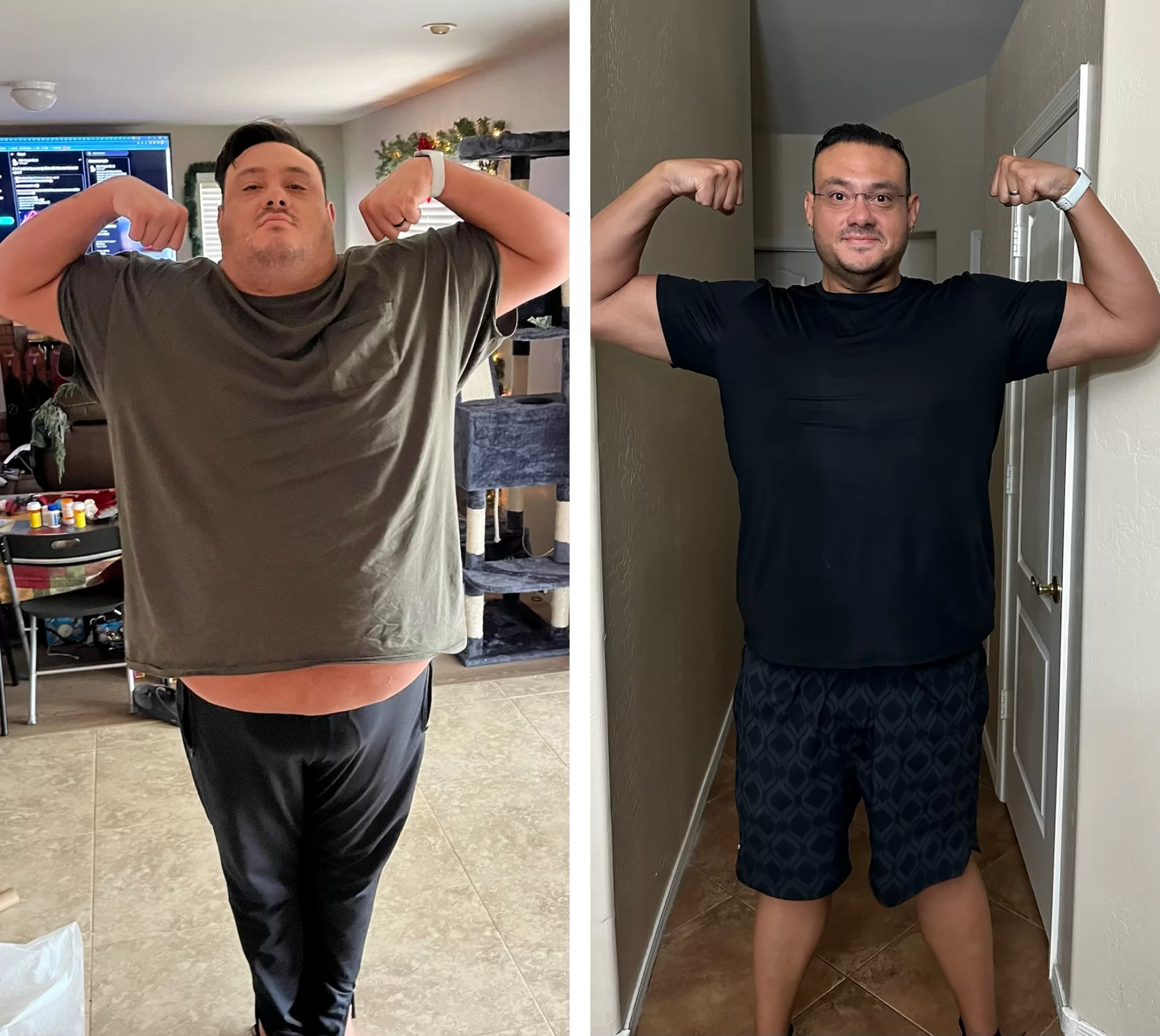- What Are High Testosterone Levels in Men?
- Signs and Symptoms of High Testosterone in Men
- What Leads To High Testosterone Levels in Men: The Most Common Causes
- What Are the Side Effects of Too Much Testosterone?
- Disadvantages and Benefits of High Testosterone
- The Disadvantages of High Testosterone Levels
- The Benefits of Increased Testosterone Levels
- How To Treat High Testosterone in Males
- Determining Your Testosterone Levels
If you’re an aging male who has been searching for ways to remain physically active and healthy in your latter years, there’s a good chance that you’ve seen many articles stressing the importance of your testosterone. By now, you’re probably well aware that testosterone plays a huge role in developing and maintaining muscle mass, bone density, hair growth, reproductive function, and metabolic processes. That said, you’ve also more than likely read all the articles about what happens to these characteristics when your testosterone levels get too low.
When testosterone levels begin to decline below the normal parameters for a man’s age, it can lead to a hormone imbalance known as low testosterone. For many men, low testosterone can cause a range of disparaging symptoms that can significantly impact their physical health, including:
- Low sex drive
- Decreased muscle mass
- Weakened bone density
- Constant fatigue
- Impaired cognitive function
Over the last few years, low testosterone has become an increasingly popular topic of conversation for its impact on men’s health. Several studies have focused on various medical treatments to help men increase their testosterone levels and alleviate their low testosterone symptoms. In many cases, men are even encouraged to find foods that can increase testosterone as a natural alternative to maintaining healthy testosterone levels.
But what happens if those testosterone levels get too high? Since low testosterone has been placed at the forefront of many discussions regarding testosterone, many people tend to overlook high testosterone’s effect on the male anatomy. However, just because it isn’t regularly talked about, doesn’t necessarily mean that it doesn’t occur. In some cases, men can develop high testosterone levels as a result of a medical condition or certain medications, while others may find their bodies producing too much testosterone as a result of specific procedures. Regardless of how men develop high testosterone, one thing is sure: men with high testosterone are left vulnerable to the same issues as men with Low T, and depending on their current state of health, there are times when that vulnerability can make their high testosterone symptoms even worse.
So how do you know when you have high testosterone? And what can you do to treat it? In this article, we’ll discuss the various causes, symptoms, and treatments for high testosterone to provide a more in-depth look at the hormone imbalance that has taken a back seat to low testosterone.
What Are High Testosterone Levels in Men?

Signs and Symptoms of High Testosterone in Men
Similar to low testosterone, once men’s testosterone levels become too high, their bodies will typically exhibit several debilitating symptoms, such as:
- Excessive body hair
- Infertility
- Headaches
- Swelling in the feet or legs
- High sex drive
- Enlarged prostate
- Increased appetite
- Chest pain
Men may also experience blurred vision, trouble breathing, and weakness on one side of the body as a result of high testosterone levels. If you experience these types of high testosterone symptoms, you should immediately consult with a physician or hormone specialist about checking your testosterone levels to determine the cause of your high testosterone.
What Leads To High Testosterone Levels in Men: The Most Common Causes
In most cases, it is rare for men to have high testosterone levels naturally. However, there are several factors that could cause a man’s testosterone levels to increase, such as:
Adrenal Gland Complications
The adrenal glands, the small organs above the kidneys, also helps to produce testosterone. However, adrenal disorders can cause the body to overproduce testosterone. Men who suffer from genetic conditions such as congenital adrenal hyperplasia are usually unable to produce other hormones, which can indirectly lead the body to increase testosterone production and elevate high testosterone levels.
Tumors
Tumors that appear on the testicles or the adrenal glands can also affect testosterone production. In rare cases, adrenal or testicular tumors can cause the body to produce high amounts of testosterone.
Supplement or Drug Abuse
Men who regularly take large amounts of testosterone through testosterone supplements are likelier to have high testosterone levels. In many cases, illegal anabolic steroid use has typically been the most likely cause of abnormally high testosterone levels in men.
What Are the Side Effects of Too Much Testosterone?
Whether you’re receiving extra testosterone through supplements or testosterone replacement therapy, having increased testosterone can lead to several side effects, including:
Mood Swings
When testosterone levels become too elevated, it can affect a man’s cognitive function and lead to changes in their mood. Men with high levels of testosterone may exhibit various unexplained behaviors, such as:
- Irritability
- Depression
- Aggression
- Impatience
- Rash or risky decisions
Acne
Having high levels of testosterone can lead to elevated levels of dihydrotestosterone (DHT), which is responsible for many male characteristics, including hair growth and skin development. When DHT levels reach abnormal levels, it can cause hair loss, as well as acne and oily skin. High testosterone can also lead to increased sebum production, which can also lead to clogged pores and acne.
Testicular Shrinkage
The hypothalamus and the pituitary gland are primarily responsible for secreting the luteinizing hormone (LH), which stimulates the testes to produce testosterone. However, if the body begins producing too much testosterone, the brain will stop releasing LH to the testes, which can reduce testosterone production. In doing so, the testicles may shrink in size and, as a result, reduce sperm count.
Changes in Blood Pressure And Blood Cell Count
High levels of testosterone may raise or lower your blood pressure and cause hypertension or hypotension, which can lead to several symptoms such as headaches, nausea, dizziness, fatigue, and fainting. Abnormally high testosterone levels can also lead to increased red blood cell and hemoglobin levels, which can cause heart attacks, strokes, and blood clotting. Other symptoms of blood clotting include headaches, numbness, and shortness of breath.
Disadvantages and Benefits of High Testosterone
There is much debate about the disadvantages and benefits of high testosterone, especially regarding testosterone replacement therapy (TRT). Typically, testosterone replacement therapy aims to help men with low testosterone increase and optimize their testosterone levels, which can lead to several improvements in their physical health. However, using TRT to increase your testosterone may lead to rare cases where your testosterone levels are too elevated. Abnormally elevated testosterone levels may cause several side effects and increased risk for certain medical conditions, which is why many men should weigh the pros and cons of testosterone replacement therapy before starting treatment. Here are some things to consider as you decide whether or not TRT is right for you.
The Disadvantages of High Testosterone Levels
As previously stated, having testosterone levels that are higher than normal standards may cause several side effects, such as:
- Heightened risk of exacerbating pre-existing heart conditions
- Increased body fat and weight gain
- Insomnia
- Worsened sleep apnea
If you’re undergoing TRT, there may be instances where your testosterone becomes too elevated from treatment and causes similar symptoms. Depending on your medical history, these complications may persist as long as you remain in therapy.
The Benefits of Increased Testosterone Levels
On the other hand, men with low testosterone who receive TRT to increase their testosterone just enough to balance their hormones levels will typically experience several benefits to their physical health, including:
- Increased muscle mass
- Enhanced cognitive function
- Improved sex drive
- Higher energy levels
- Lean muscle growth
It is extremely important to discuss your medical history and the possible risks of testosterone replacement therapy with a licensed physician before considering testosterone replacement therapy. If they determine that TRT may not be a good treatment option, your physician can also suggest other alternatives to help you treat your symptoms.
How To Treat High Testosterone in Males
Physicians will usually treat high testosterone, depending on the cause of the hormone imbalance. In many cases, treating high testosterone in males will require several lifestyle changes, which include adjustments to certain medications. For example, if you’re loading up on testosterone supplements, it is wise to stop immediately. Eliminating the use of testosterone supplements as soon as possible can help bring your testosterone levels back within range.
Since adrenal and testicular tumors can cause the body to produce high levels of testosterone, you can also focus on treating such conditions to help lower and maintain your testosterone levels. There are several options, including surgery and chemotherapy, that can help remove your tumors. Once these tumors are removed, the body will normally recalibrate, and your testosterone should return to acceptable levels.
Finally, you can also make changes to your diet by adding low starch and dairy to help maintain your weight and reduce your high testosterone levels. Cutting out foods high in testosterone can also help you lower your testosterone levels and bring them back in range. Of course, you don’t want your testosterone levels to decrease too much, so make sure that you’re also eating a balanced diet of protein, fruits, and vegetables to keep your testosterone from dropping below your set goal.
If you’re undergoing testosterone replacement therapy for low testosterone, your physician will regularly monitor your testosterone levels to ensure the treatment is working. If your testosterone levels become too elevated at any point during treatment, they can adjust the dosage of your medication so you can get your testosterone levels within normal parameters.
Determining Your Testosterone Levels
During testosterone synthesis, 98% of your body’s testosterone will bind to certain proteins and are no longer available for the body to use. This is known as bound testosterone. The remaining 2% of unbound testosterone that is left available for use is known as free testosterone. Together, your bound and free testosterone will make up the total amount of testosterone in your bloodstream, which is commonly referred to as total testosterone.
Whether you’re diagnosed with high or low testosterone, your total testosterone and free testosterone are typically the best indicators to determine the state of your testosterone. Since the body secretes the most amount of testosterone early in the morning, your physician will more than likely want to have your blood drawn about that time. Once your blood is drawn, your physician will conduct total and free testosterone tests to accurately measure your testosterone levels. In terms of testing your testosterone levels, the total testosterone test will measure the total amount of testosterone traveling through your bloodstream and allow your doctor to see if your testosterone levels are too low or too high, whereas the free testosterone test will measure the available or active form of testosterone that the body uses for specific cellular functions and help physicians determine the cause of your testosterone imbalance. Depending on your results, your physician will then determine if you’re suffering from high or low testosterone and create a treatment plan to address the respective symptoms. In many cases, your physician may suggest scheduling an appointment with a hormone doctor as a follow-up so that you can have your testosterone reviewed by a specialist and receive the best medical care and treatment to help balance your hormone levels.
At Renew Vitality, we specialize in hormone replacement therapy and regenerative medicine for men suffering from hormone imbalances such as high testosterone. Our amazing physicians and wellness coaches provide safe hormone treatments and manageable wellness plans to help you balance and maintain your testosterone levels. If you wish to learn more about our treatment options, contact us at 1-866-995-2371 and schedule an appointment to meet with one of our physicians at any of our hormone replacement clinics in the United States.
Resources:
- https://www.health.harvard.edu/drugs-and-medications/testosterone–what-it-does-and-doesnt-do
- https://www.uspharmacist.com/article/belly-fat-in-men
- https://www.nih.gov/news-events/nih-research-matters/understanding-how-testosterone-affects-men
FAQ
At what age does testosterone increase the most?
Men's testosterone levels usually peak in their late teens, between 17- 19 years old, before declining to their normal levels near adulthood.
What is the normal testosterone level for a 60-year-old man?
On average, the normal testosterone level for men in their 60s typically ranges from 196-859 ng/dl.
Is high testosterone in males bad?
Yes. Just like low testosterone, high testosterone can also cause many symptoms, such as low sperm count and testicular shrinkage, that can become detrimental to a man's overall health.




